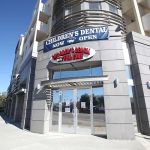Essential Preventive Care Measures for Dental Emergencies: Tips for Maintaining Oral Health
- 1. The Importance of Preventive Care for Dental Emergencies
- 2. Common Types of Dental Emergencies and How to Prevent Them
- 3. Daily Dental Care Tips to Avoid Emergencies
- 4. How to Avoid Accidents and Injuries That Can Lead to Emergencies
- 5. When to Seek Professional Help: Recognizing the Signs of a Dental Emergency
1. The Importance of Preventive Care for Dental Emergencies
Preventive care plays a crucial role in reducing the likelihood of dental emergencies. Taking steps to maintain oral health not only keeps your smile bright but also helps avoid the need for urgent treatments. Simple practices like regular brushing, flossing, and professional checkups can make a significant difference in preventing severe dental issues down the line.
2. Common Types of Dental Emergencies and How to Prevent Them
Dental emergencies can range from a knocked-out tooth to severe toothaches, and each type requires quick intervention. Some of the most common emergencies include:
- Tooth fractures and cracks: These often occur due to accidental impacts or chewing on hard objects. Prevent these by avoiding overly hard foods and using a mouthguard during sports.
- Lost fillings or crowns: These can happen unexpectedly, but regular dental visits for checkups can help catch potential issues before they lead to bigger problems.
- Severe toothaches: Often caused by untreated cavities or gum infections, these pains can be avoided with proper dental hygiene and routine cleanings.
3. Daily Dental Care Tips to Avoid Emergencies
Taking care of your teeth daily is the best way to prevent many common dental emergencies. Here are some practical tips:
- Brush twice a day: Use fluoride toothpaste and a soft-bristled toothbrush to clean your teeth and gums thoroughly.
- Floss regularly: Flossing removes food particles and plaque from between your teeth, areas your toothbrush might miss.
- Use mouthwash: An antimicrobial mouthwash can help reduce bacteria in your mouth and prevent infections.
- Eat a balanced diet: Avoid sugary foods and drinks that contribute to tooth decay.
4. How to Avoid Accidents and Injuries That Can Lead to Emergencies
Accidents happen, but there are ways to reduce the risk of dental injuries. If you're active in sports or other high-risk activities, consider using a mouthguard to protect your teeth. Additionally, be cautious when eating hard foods or using your teeth for tasks that they aren't designed for, such as opening bottles or tearing packages.
5. When to Seek Professional Help: Recognizing the Signs of a Dental Emergency
Sometimes, despite your best efforts, dental emergencies occur. It's essential to know when to seek professional help. Some signs that require immediate dental attention include:
- Severe pain that doesn't go away
- Bleeding that doesn't stop
- A knocked-out tooth that you can't save
- Swelling or signs of infection, such as fever or pus
If you experience any of these symptoms, it's important to visit your dentist or an emergency dental clinic as soon as possible to prevent further complications.
By following these preventive care measures and maintaining a consistent dental care routine, you can significantly reduce the risk of dental emergencies. However, it's equally important to stay vigilant and recognize when professional dental care is needed to avoid long-term damage to your oral health.







 Bloch Michelle DDS0.0 (0 review)
Bloch Michelle DDS0.0 (0 review) Children's Dental FunZone - Pediatric Dentist & Orthodontist - West LA4.0 (1410 review)
Children's Dental FunZone - Pediatric Dentist & Orthodontist - West LA4.0 (1410 review) Healthy Smiles Dental Care4.0 (40 review)
Healthy Smiles Dental Care4.0 (40 review) Dental Spa4.0 (196 review)
Dental Spa4.0 (196 review) Peach Tree Dental4.0 (330 review)
Peach Tree Dental4.0 (330 review) Smile Garden at Midlothian Children's Dentistry4.0 (603 review)
Smile Garden at Midlothian Children's Dentistry4.0 (603 review) The Importance of Oral Health Education During Pregnancy for a Healthy Pregnancy
The Importance of Oral Health Education During Pregnancy for a Healthy Pregnancy Best Tips for Brushing Your Teeth Properly for Healthy Gums: Essential Techniques for Oral Health
Best Tips for Brushing Your Teeth Properly for Healthy Gums: Essential Techniques for Oral Health Why Skipping Dental Checkups Can Lead to Bigger Oral Health Problems
Why Skipping Dental Checkups Can Lead to Bigger Oral Health Problems Advantages of Porcelain Dental Restorations
Advantages of Porcelain Dental Restorations How Can Diabetes Cause Tooth and Gum Problems? Preventing and Managing Oral Health Issues
How Can Diabetes Cause Tooth and Gum Problems? Preventing and Managing Oral Health Issues Healthy Habits for Promoting Good Oral Health and Hygiene: Tips for a Healthy Smile
Healthy Habits for Promoting Good Oral Health and Hygiene: Tips for a Healthy Smile